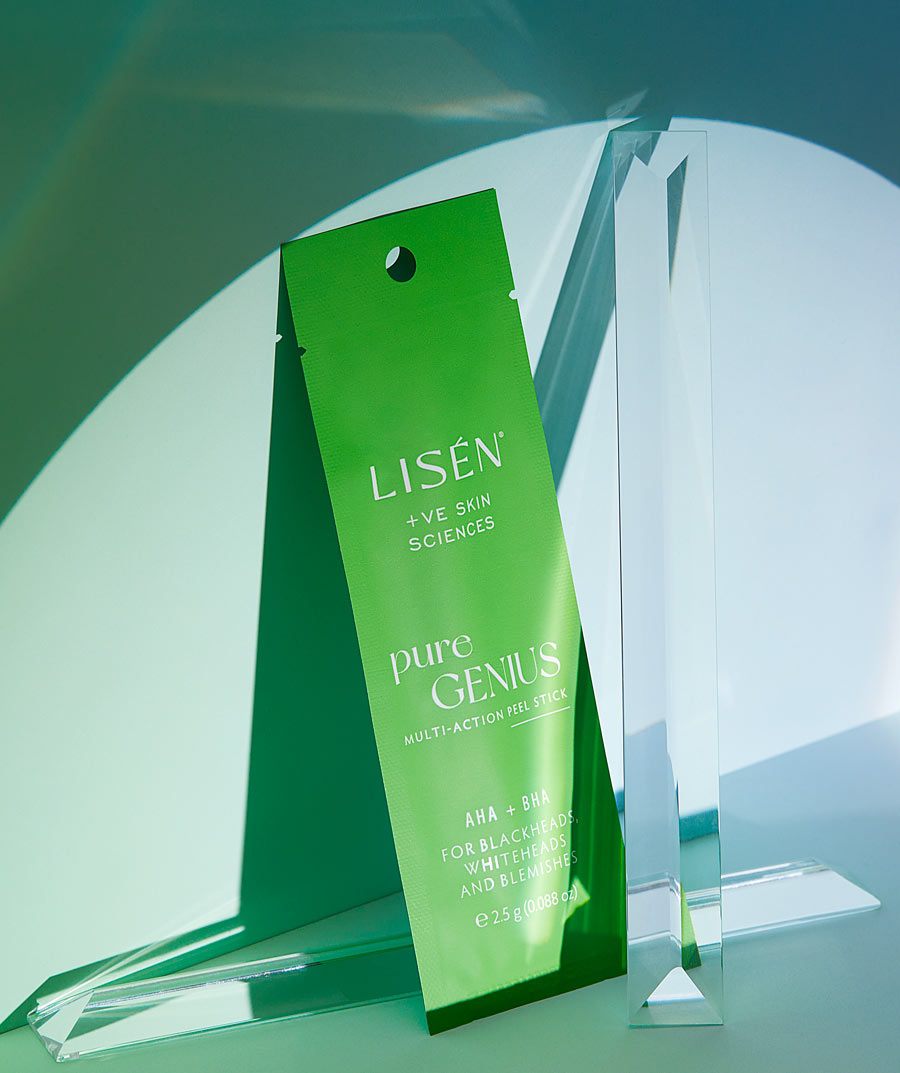While shopping for skin care products, you've probably seen the term "non-comedogenic" listed on some of the labels. The term "non-comedogenic" is often used to describe products that are suitable for acne-prone skin. But what does it really mean? And is it just a gimmick, or is there a science to back it up?
Non-Comedogenic Meaning
It has everything to do with pores- the tiny openings on your skin that release sebum to lubricate your skin. ‘Comedone’ or ‘Comedo’ is a term used to describe a pore clogged with sebum, dirt, debris of dead skin, and residues from your makeup and skincare products.
It turns into a blackhead ( if the pore stays open on the surface) or a whitehead (if the pore gets closed on the surface with a layer of skin on top).
A comedone is also the first stage in the formation of acne. The presence of C. acnes bacteria, (a species of bacteria that is linked to acne skin condition) can trigger our body's defense mechanism and turn the comedones into red, painful bumps we call pimples or acne. And we all know how hard acne is to treat!
Some skincare ingredients have a higher tendency to accumulate within the pores and form comedones. Such ingredients and products containing such ingredients in high proportions are termed “comedogenic”.
Similarly, ingredients that don't clog pores and products made without any such comedogenic ingredients are termed “non-comedogenic”. If you have acne-prone skin, you know why non-comedogenic is an important term for you now.
How Is Comedogenicity Determined?
While there are plenty of factors that lead to acne, from hormonal imbalances to genetics, ingredients in cosmetic products can also lead to acne by clogging pores. This condition is known as Acne Cosmetica.
Hence, scientists conducted various experiments to determine how likely an ingredient is to form comedones so that people dealing with acne can avoid them.
A comedogenic scale was thus formed based on the results of these experiments by giving comedogenic ratings to ingredients from 0-5. Here's what each rank on the comedogenic rating scale refers to:
0 – Unlikely to clog pores
1 – Low likelihood of clogging pores
2 – Moderately low likelihood of clogging pores
3 – Moderately high likelihood of clogging pores
4 – High likelihood of clogging pores
5 – Very likely to clog pores
The higher the comedogenic rating of an ingredient is, there is more likelihood of you having breakouts after using it. So ingredients with a rating of 0-2 are usually referred to as non-comedogenic ingredients while ingredients rated between 3-5 are referred to as comedogenic ingredients.
If you have acne-prone skin, it is best to choose non-comedogenic makeup and skincare to reduce the chances of your pores getting clogged.
How Reliable Are These Non-Comedogenic Ratings?
While the term “non-comedogenic” has been used on cosmetic labels for many years now, the term is not regulated by any governing body. Thus, there is no solid definition to determine if certain ingredients can clog pores.
Even the comedogenic scale is not standardized or 100% accurate. It is based on the earliest studies on the comedogenicity of cosmetic ingredients which were done on rabbit ears.
Now, rabbit ears are more sensitive to comedones than human skin. So the likelihood of an ingredient being comedogenic on our human skin is lower.
These days, the comedogenicity of ingredients can be assessed in several ways without animal testing (thankfully!) and results may vary with each method. But the term non-comedogenic is not just a marketing gimmick.
Studies have shown several ingredients like isopropyl myristate and its derivatives, lanolin, wheat germ oil, and coconut oil are comedogenic on our human skin. So if you have oily or acne-prone skin, choosing products formulated without these ingredients greatly reduces your chances of suffering from more breakouts.
Are All Oils Comedogenic?
If you have oily or acne-prone skin, you likely stay clear of oil-based formulations, right? While many oils tend to be comedogenic and have a high tendency to cause breakouts specifically if you have oily skin, the presence of oil does not make a formulation comedogenic.
There are several ingredients like sunflower oil, grapeseed oil, and even silicones ( a synthetic oil-like substance) that have very low comedogenic ratings and are suitable for oily, acne-prone skin. In fact, some oils like grapeseed oil can help prevent clogged pores by balancing the fatty acid ratio in your sebum.
Even the presence of a tiny amount of any comedogenic ingredient does not make the entire formulation comedogenic. So while we advise refraining from applying coconut oil directly on acne-prone skin, a formulation with a small amount of coconut oil or its derivative can be suitable for use. Remember, it's the dose that makes the difference.
How to Find Non-Comedogenic Products?
If you have oily or acne-prone skin, check product labels for the terms “non-comedogenic” or “acne-friendly “ to avoid pore-clogging ingredients.
You can easily identify non-comedogenic products from Lisen by looking for the "Acne-Suitable" tag. Here are some non-comedogenic products from our product range that are formulated specifically with acne-prone skin in mind and won’t trigger comedones.
A foaming cleanser for acne-prone that is gentle and does not strip moisture from the skin. It takes out excess sebum, dirt and dead skin cells from pores to prevent clogged pores while calming the skin.

A spot treatment gel that speeds up the acne healing process and reduces the chances of scarring by exfoliating the pores and soothing inflamed skin.

A multi-action peeling stick with AHAs and BHA that deeply exfoliate the skin while antioxidants reduce pigmentation and repair the skin for smooth, clear skin.

A non-comedogenic sunscreen with SPF 50+ PA+++ rating that quickly absorbs into the skin and offers broad-spectrum protection against sun rays and environmental stressors. It also has a patented Anti-pore Dex Complex that ensures your pores don't get clogged and stay clean.

A non-comedogenic moisturizer with an ultra-lightweight texture that feels non-sticky and balances sebum levels while protecting the skin from photodamage and calming irritations.

A lightweight multitasking serum that works on enlarged pores, dullness, dark spots, uneven skin texture, photodamage and early signs of ageing.





